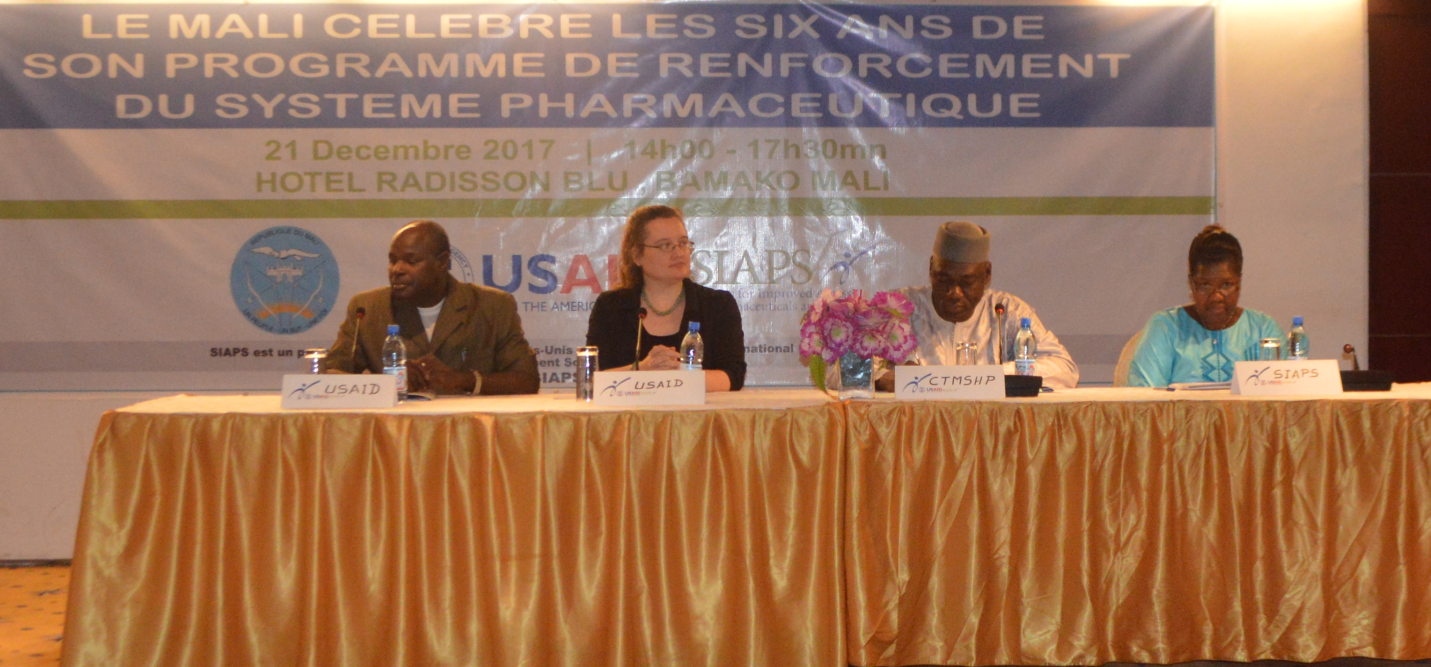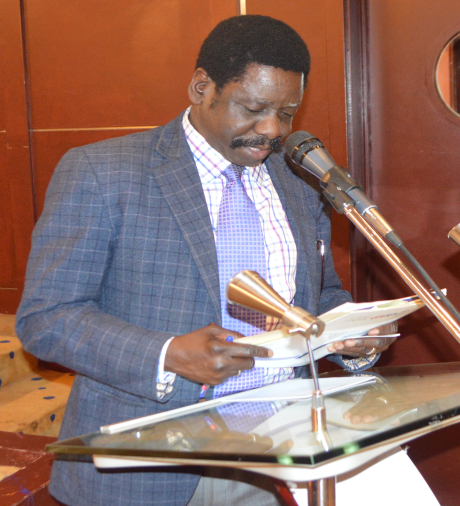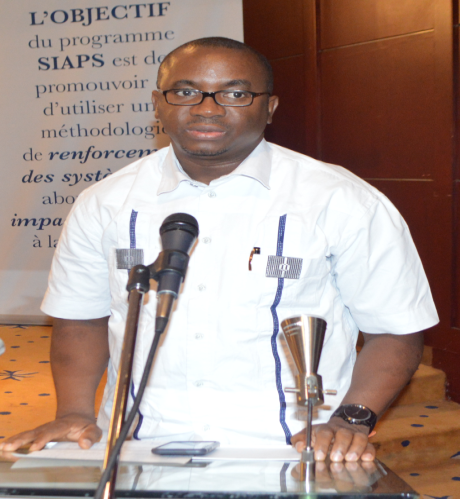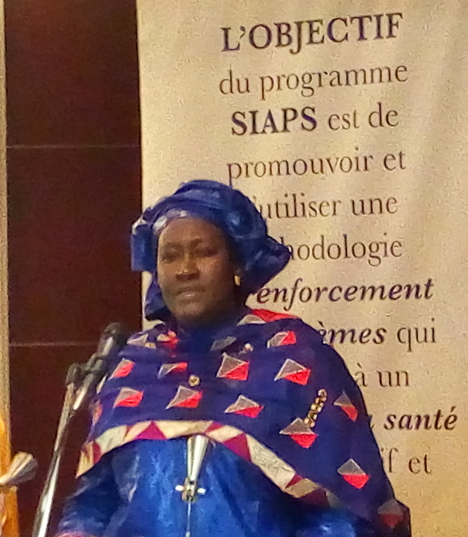For the French version of this article, please click here.

For six years, the USAID-funded Systems for Improved Access to Pharmaceuticals and Services (SIAPS) program has been working with Mali’s Ministry of Health and Public Hygiene (MSHP) to enhance governance and transparency in the pharmaceutical sector, strengthen the supply chain system for pharmaceutical commodities, and improve the tools that were developed for better decision making at the national and regional levels.
As SIAPS concludes its work in Mali, its accomplishments were celebrated at a closing ceremony in Bamako, December 20–21, 2017. The event was chaired by the Technical Advisor to the MSHP for pharmacies and medicines, Dr. Sékou Oumar Dembélé, and the USAID Deputy Director for Mali, Ms. Karen Koprince. In her remarks, Ms. Koprince acknowledged the support provided by SIAPS to the MSHP and its partners and highlighted the program’s many achievements despite the challenges it faced.
Throughout the program, SIAPS supported the conception and dissemination of regulatory documents on pharmaceutical management, including standard operating procedures, a strategic plan for the Pharmacie Populaire du Mali (PPM), supervision guides, a guide for the storage and warehousing of medicines, and a road map for the supply of essential medicines.
SIAPS successfully monitored the training, supervision, and coaching of all actors in the supply chain system for the management of essential medicines, the purchase of a warehouse to increase the space and storage conditions for the purchasing unit, and the development of a mechanism to monitor and manage the use of antimalarial commodities.
The program also supported the implementation of innovative and scientifically proven tools for quantification of pharmaceutical products (Quantimed and reality check) and reporting of commodities for better decision making (OSPSANTE).
Ms. Koprince assured the Government of Mali that the United States would continue its support to strengthening the pharmaceutical sector in Mali.
SIAPS’ acting Country Project Director, Dr. Safoura Berthe, presented some of SIAPS’ key achievements, and her remarks were well-received by attendees. The Director of the Programme national de lutte contre le paludisme, (PNLP), the CEO of the PPM, and the Deputy Director of the Direction de la Pharmacie et du Médicaments (DPM) also spoke on progress made through SIAPS’ expertise.
 “With SIAPS, we were able to assess the availability of antimalarial commodities every six months and the needs for quantification are secured up until 2020. SIAPS was a strong partner; their approach is respectful and inclusive …Today, we are closing a project that is still greatly needed.”
“With SIAPS, we were able to assess the availability of antimalarial commodities every six months and the needs for quantification are secured up until 2020. SIAPS was a strong partner; their approach is respectful and inclusive …Today, we are closing a project that is still greatly needed.”
–Director of PNLP, Dr. Diakalidia Kone
 “SIAPS completely changed the functioning of the PPM. Lessons learned that were presented here today will have a practical and academic reach with a tremendous impact.”
“SIAPS completely changed the functioning of the PPM. Lessons learned that were presented here today will have a practical and academic reach with a tremendous impact.”
–CEO of the PPM, Dr. Moussa Sanogo
 “We were constantly challenged by stock outs that were happening in the country. Staff at the DPM had a crucial need for OSPSANTE, a strong tool that would enable us to assess the availability of medicines in just one click.”
“We were constantly challenged by stock outs that were happening in the country. Staff at the DPM had a crucial need for OSPSANTE, a strong tool that would enable us to assess the availability of medicines in just one click.”
–Deputy Director of DPM, Dr. Sango Fanta Sangho

